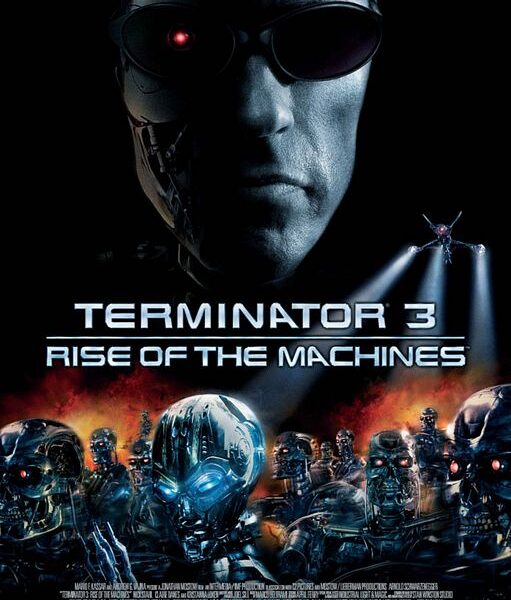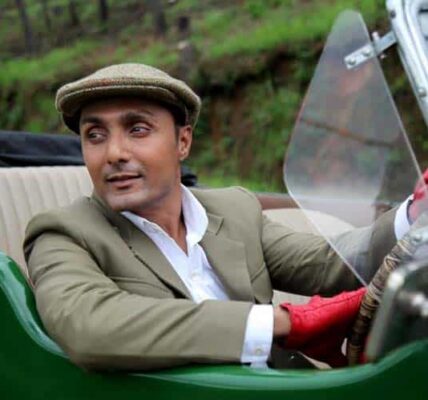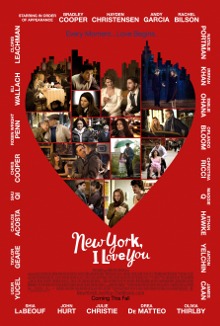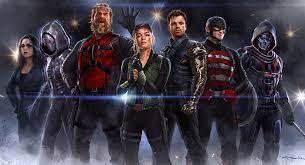How easy was it to raise funding for The Machine, and can you talk us through the process?
When we set out to make The Machine, we were conscious of the fact that we have struggled with stepping up to larger budgets on past productions. I knew something in our model had to change, and that would require finance outside my direct circle. It soon became clear that if we were going to get taken on by an investment network, my then limited knowledge of tax structure could be a hurdle to investors.
It was time to find a good accountant. I looked up people who had managed lower budget films and companies who would likely have a similar low level of liquidity to us, and found Robert Graham. He’d managed the film City Rats, which broke records for Revolver on DVD sales. I then applied to Film Agency Wales (FAW) and Welsh Assembly Government (WAG) for production funding, but the FAW production application was unsuccessful.
People just did not believe we could deliver on our vision, as there was little precedent for anyone doing so at this budget level. It was a fair assessment for someone holding the purse strings of public money, but it was a big knock-back for us.
Running out of money and time, I wrote a 23-page investment memorandum and went into battle. The pitch was OK but in financial terms it was a bomb—two people interested and no cash pledged. On reflection, the concept art wasn’t strong enough, the budget was slightly too high and there was not enough money in the room.
Luckily we found a Welsh investor living in Dubai who was interested enough to agree to invest, contingent on other film finance being raised. This gave us leverage, so Robert introduced us to a new angel network, The Ideas Factory (TIF). The TIF team refined the investment memorandum into a simple, glossy offer letter. Next they fine-tuned our pitch and put us in a room with over 100 millionaires at an investor seminar. We did our new pitch and hey presto; four and five-figure chunks of finance started to come in immediately afterwards. We did three more investment seminars in the next six months. It was like undergoing a Dragons Den every two months, but once you’ve got momentum you begin to enjoy it.
Most people didn’t believe we could make a sci-fi film for under £1m, so we needed a glossy promo to show them how it could be done. This was funded by the Film Agency for Wales. And as soon as our finance gap slipped below six figures, we set a shoot date for summer 2012 and took the trailer to Berlin. Then, of course, we had to sell it. Myself and writer/ director Caradog James spoke to every distributor and sales agent we could find, and ended up partnering with Content.
Attracted by the promo and script (and, in the company president’s terms, ‘how hungry we were’), Content offered to close our funding gap and used the promo to sell almost $500k of pre-sales in the following Cannes Market. It was, I’m told, one of the hottest selling UK indies at the festival. We went into principal photography in July 2012 and shot for just under five weeks; the rest is happening right now.
Having been through the blood sweat and tears of raising £1m for a successful film, future fundraising should be smoother. For anyone else out there who is in the position we were two years ago, my advice would be simple: spend time finding the best advisors. Without people to help you navigate your way through things like tax credits and investor proposals, things will be really tough.
The Machine showcases some incredible VFX; was it a conscious decision to concentrate resources on the film’s visuals?
The film was meant to have around 150 VFX shots, but we ended up with almost 400. We were very fortunate to find [VFX studios] Minimo and Bait, who were able to deliver top level on the limited resources we had; both teams were as hungry as us to punch above their weight. We knew that if we had any sub-standard VFX in the film people would not forgive it because of the budget, so we had to keep the bar high. Once you start along this road you can’t turn back, as you’re haunted by the prospect of one shot spoiling the overall aesthetic and pulling the audience out of the movie.
Caradog is a very visual director and his key influences are the great visual storytellers like Scorsese, Kubrick and Ridley Scott. One of the key things we were interested in was working with anamorphic lenses and playing with darkness as a key part of the film’s palette. Our DoP [Nicolai Bruel] was chosen very carefully to ensure he achieved the look Caradog wanted to create, and I think they did a wonderful job together. Often with directors that are fixated on image the performance suffers, but we’re both equally interested in people.

Toby Stephens and Caity Lotz are both great in the film; were you involved in the casting decisions?
If you cast correctly it’s much easier to make a good film, so I’m very involved in this part of the process. With Manuel Puro [Hellboy 2, Moon] as our casting director, we went through many actors and actresses before finding Toby, Caity and Denis [Lawson] for the lead roles. Casting seems to be steered by the script; the stronger it is, the more people will want to get involved, and this is polarised in lower budgets. Our lead cast put great faith in us to pull off what we were trying to achieve, and it makes me very proud to have delivered as best we could.
When making an independent film like The Machine, are you happy to appeal to a niche audience or are you always striving for a wide release?
Our first feature Little White Lies was a bit of an eye-opener for us; we got six BAFTA Cymru nominations, winning two, a BIFA nomination, and played at many festivals. With all these accolades, however, the film still struggled to find an audience and get distribution, which made us evaluate what we did next carefully. With The Machine we wanted to make a film that we would queue to see in a multiplex.
The challenge of connecting with the largest possible audience is something that excites both myself and Caradog. Conversely, the thing that got LWL made was passion for the subject, not business. Amongst other things the dynamics of equality and culture connect with us at a DNA level. Our ambition is always to try and weave in some of this texture in the most accessible way (and, hopefully, get to blow some stuff up along the way).
As a producer, what responsibility do you take for helping your film find an audience?
When writing the offer document to investors I analysed comparable audience stats very closely to understand who we were trying to speak to with this script. This was the first step in giving it the best shot at finding an audience, and that was important to me. I’m also heavily involved in the film’s distribution and raised the P&A fund to put it out. We’re working with a hand-picked team lead by Dave Shear, who was head of theatrical at Revolver; Content and Anchor Bay are also lending their weight to the release. I take this role very seriously and I’d encourage people to try it, especially on lower budgets. It’s not often you’ll find someone who cares as much as you do about your story so the ambition was to fuse that passion with a team who was right for the project.
As a regional filmmaker based in Wales, do you feel like you have access to all the opportunities that are available in the UK for grass-roots talent?
The Film Agency for Wales and Welsh Assembly Government have been of great support and were crucial in getting the film made. The Film Agency funded the promo that allowed us to go to Cannes and get the pre-sales, and WAG was able to fund part of what we shot on Welsh soil, which was most of the film. These are opportunities which I feel very fortunate to have in Wales.
The Film Agency has also been an important factor in developing projects with us since Little White Lies; between productions this funding can be vital to keeping a company alive. There comes a point as a producer when you’re too busy to work and get paid, but the work you’re doing isn’t paying at all; this was a challenging stage in [production company] Red and Black Film’s growth. Public funding helped us keep working though these periods, and in future times of plenty can help our business to expand and capitalise.
You have a strong collaborative relationship with Caradog James; how important is it to work with people who share your vision and approach to filmmaking?
Our shared sensibilities are what has kept our company together and growing. So many questions are thrown at you artistically, technically, commercially, etc.; us sharing a vision means that even when we don’t converge immediately, we often end up at the same place. We’re both very fortunate to have found a good collaborator early on in our careers; we’d both just won awards in short films and it was an equal partnership from the outset and we’re definitely stronger for it. The Machine opens in UK cinemas in March 2014. •
www.redandblackfilms.com












